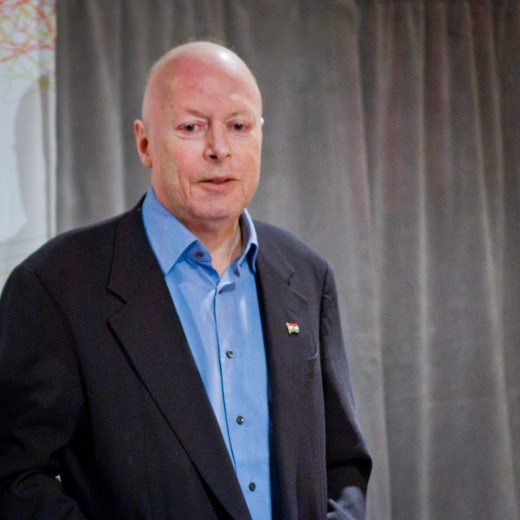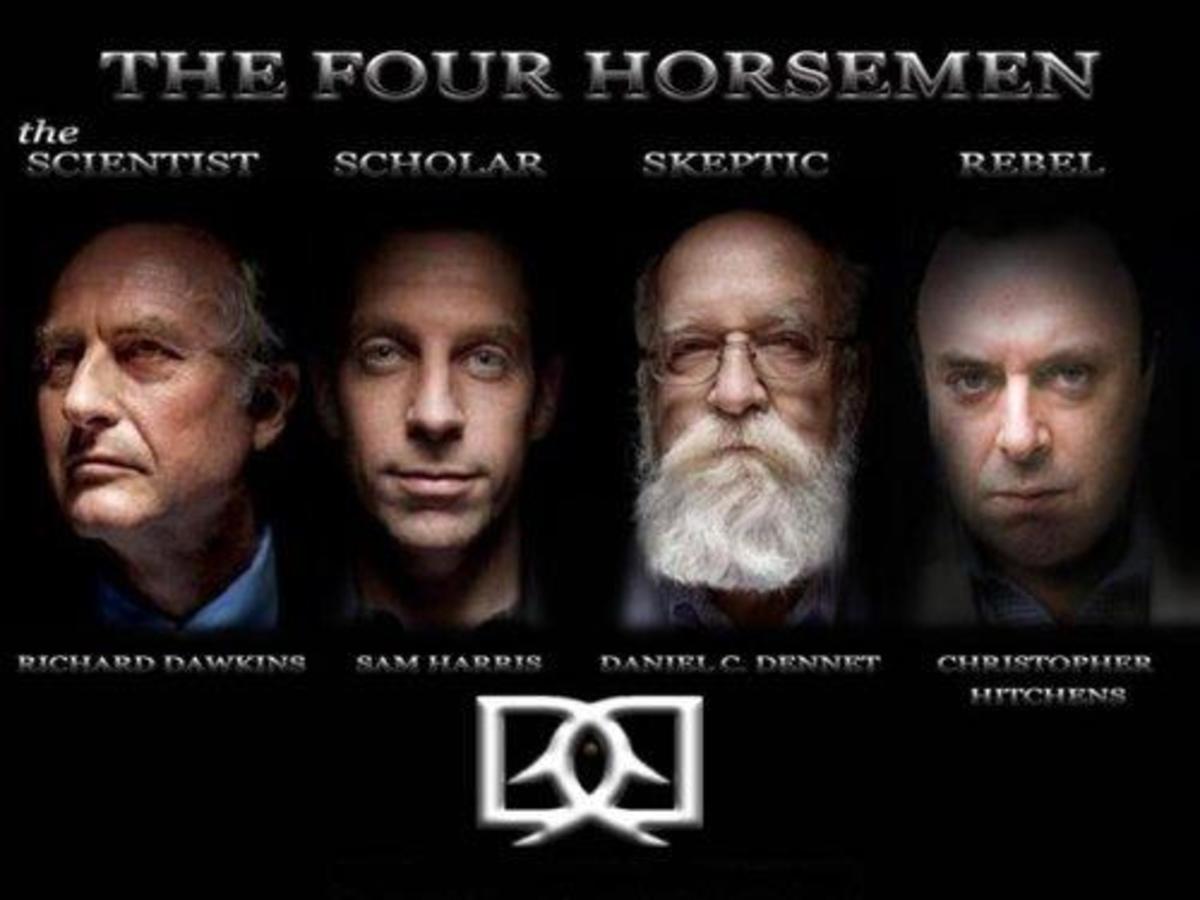Is Atheism Rational?
Is Life Without God Meaningful?
Introduction
Atheists are quick to accuse believers of engaging in “wishful thinking” saying, “You Christians are wishing for pie-in-the-sky.” He thinks that the believer is exercising faith, while he’s exercising reason. The problem with this vaunted and self-congratulatory view is that it’s a myth. Yes, It’s true that hope and belief are a vital part of the Christian experience. And it’s also true that unbelievers exercise reason. However, it’s just as true that believers utilize reason and that atheists conduct much of their life as an exercise of faith.
Having said that as a point of departure, let's assume that the atheist is right, that death signifies the end of human existence. I maintain that atheism takes from a man a reason to be rational. That is, the act of reason for the atheist is irrational.

Why?
Because in order for your actions to be deemed "rational" you must have a justifiable reason for them, but Mr. Atheist has none. The best I’ve heard from atheists is that they exercise reason because…it’s “rational.”If you think about it, to exercise reason for reason’s sake, it kind of like being “good for goodness sake,” a mantra that (surprisingly) some atheists have latched onto recently. So, thank God, atheists don’t quote God; they just quote Santa.
The fact is that atheists engage in circular reasoning, the same kind they chastise Christians for exercising. The atheist holds to his belief in reason with the same tenacity as the Christian holds to his God. It’s not that the atheist does not exercise faith; he does. It’s merely a question of what his faith is in.
Another claim of faith for the atheist is that he believes in "science." This is equally irrational.
Why?
Because there’s no such “thing” as "science." “Science” is a concept, an abstraction that we use to generalize the whole of human activities that are directed toward investigating our world by empirical means. "Science" is not a causal agent; it can't do anything. How can an unefficacious agent be that in which an atheist places his confidence? So, when the atheist says, “I believe in science,” he's in essence saying, “I believe in a power that isn't a power,” which might be worse than believing in magic and more comical than believing in Santa.
Most atheists don’t recognize this because, like some of their theistic fellow travelers, they’re blinded by a kind of zealotry that keeps them from distinguishing between their assumptions and the real world, a condition that stunts their ability to question their own belief system.
But Mr. Atheist is also living in Pollyanna if he thinks he’s not also an inhabitant of the Land of Pie-in-the-Sky-By-and-By. The charge of “wishful thinking” by atheists against Christians is laughable because of the endless train of wishful thoughts that the atheist espouses daily. Even if atheism is true, then the atheist has taken a flight from reason in at least two ways. Make no mistake: these are beliefs. And they are irrational beliefs, affronts to reason and evidence.
The two beliefs are
- The atheist believes that freedom awaits him when he dies
- The atheist believes his life is meaningful
Are We Having Fun Yet?
Imagine two guys have jumped out of a stunt plane, tethered together, but had no parachute. They are wired up so that you can hear their conversations on the ground. As you listen to them talking and watch them falling, you hear them laughing and carrying on like they're having a party as the plummet toward the ground. You watch from a distance as their life comes to an end when they hit ground zero.
Would you laugh along with them as they were hurling toward the ground? If you have any humanity, you'd probably be gripped with horror and perhaps even cry for them. Either they were so stoned that they didn't know that they didn't have a parachute or they did know, but just wanted to console themselves with laughter before the end came.
It's equally pitiful to watch those that have no hope beyond this life to live their lives as if they are hopeful. For all their claims to rationality, most atheists don't think seriously about their condition. They simply make goals and enjoy the pleasures of life as they ignore the end. They are yucking it up as they approach the grave. Watching them, whether they are the serious student or the carefree life-of-the-party, is a sad spectacle. Whether erudite or Epicurean, it doesn't matter: they are both headed toward the grave and will be there in a moment in the light of enduring time.

The Atheist Believes that Freedom Awaits Him When He Dies
Anyone who has grown old or who has watched others grow old knows that the march to old age is not one of emancipation. Slowly a man is robbed of his strength, both physical and mental. That which a man considers his “self” may want to remain strong and vital as he gets older; but he will be overpowered by nature as it takes its course on both him and every other living thing. The atheist may console himself that what is happening to him is also happening to everyone else: “After all, I’m just going the way of all flesh, right”? But that does not alleviate his slavery.
Make no mistake about it, what awaits the atheist is the grave. And with the grave comes enslavement. Atheists live with a Pollyanna idea that they will be free once they die—free from their pain, suffering and the sorrows of this life. But, how is it freedom to be entombed and to have no exercise of your will? Who is more free— someone in a permanent vegetative state or someone like yourself? To believe that you are free when you die is just wishful thinking.
Yes, it's exactly that--slavery. The loss of the will. What the atheist values the most is taken from him. His power of reason is gone; the pleasure that comes from physical experience, gone. What awaits him is a prison from which he will never escape. His being unaware of, his slavery, like the man in a permanent vegetative staet, is irrelevant.
Of course, Mr. Atheist has been told by other atheist bright lights brighter than him that, in the face of death, life is futility. Still, he continues on his merry way, whistling his way through the graveyard, and calling death “freedom.” But like the man said, “sayin it’s so doesn’t make it so.”
Furthermore, the atheist is powerless to save those dearest to him from this fate. Say it’s his family. He and his entire family, his children and their children, their lives—all of them—will end. They also face nonexistence. All of his protestations against slavery are vapid. They make no more sense than the lunatic rants echoing from the padded cell. All his hopes for his children, all his efforts to advance them, to give them a good life are futile. His work, his wishes, even his victories will come to nothing. To say that all of his efforts are puny would be to grant them notoriety. Against the stretch of enduring time, the sum of his life will be reduced to futility.
Of course, he may console himself that both he and others will fight valiantly in the face of death, which he will not surrender. But a man that fights against a foe that cannot be defeated is a lunatic and he is still more loony if he knows that the foe cannot be defeated. Yes, if there were some chance of victory, a resistance might be justified. But how can we commend a man who wages war against the unbeatable foe? The atheist will not win the battle against the undertaker and if he stops for a couple of minutes to think about it, he knows it.

Just Imagine...
Imagine a solitary man standing on the seashore. As he looks out, he sees the coming tidal wave. There, on the shore, in utter defiance to the coming surge, he plants his feet in the sand and thrusts out his hand to stop the wave.
If we could watch this event from the distance, we would probably feel sorry for him. We might even laugh at his audacity as the wave swallows him and carries him along, tumbling, completely unaffected by his defiance.
But, I don’t think we’d admire him.
For all his protestations against enslavement, all his rantings against the tyranny of religion, the drivel about “progress” and “science”—the atheist’s efforts are wasted. In the end, slavery wins. The tomb wins. Death wins.

Atheists Live Their Lives as if They’re Meaningful
Most atheists live their lives as if they’re meaningful. They go to work, associate with friends as if they’re unaware of the fate that awaits them. One day (if they’re right), they and all their close friends and family will be gone. And they have nothing to await them but the dark prison of oblivion. In case you haven’t noticed, the “new atheists” are getting old. Of course, many of them will console themselves with platitudes like “my life made a difference.”
But who are we kidding? Who's now grasping at pie-in-the-sky? One day, the atheist will be gone. Some atheists might grasp for a fleeting immortality by doing something that will be remembered by others. So, Hitchens creates the persona of the “notorious atheist” who goes to his grave, shaking his fist at the Kingdom of Heaven….
Big deal…
Hitchens might be remembered for a time as will men of comparative exceptional accomplishment and achievement as will the other brightest of the “brights.” But eventually, even they will be gone and forgotten. Their little world doesn’t stand a chance against the heat death that awaits our universe. All their efforts, all their desires, their aspirations for a better life—all gone. Against the backdrop of an eternal future, their efforts can only be counted as nothing.
And let’s say the atheist is right; let’s say there’s no God.
So what?
Let’s say that Chris was right and all religions—all of them—are dangerous, that the real monster of history isn’t some snarling Communist, like Stalin, but was really that Albanian nun in Calcutta. Let’s say that the idea of historical progress is right, and that religion is destined to be left on the cutting floor of social advancement….
Yawn….
One day, the books of Dawkins, Hitchens and the fellas will be the dust that settles on the cover of someone's Bible. Their scientism will seem just as backward to future dwellers as those medical practices that used leeches for healing.
If you think about it, the idea of social advancement is self refuting. If atheists are discarding old doctrines in the name of progress, then social progress is just an idea that serves as a mere stepping stone to greater enlightenment. So, the idea of social progress isn’t really “true”; it’s just another doctrine to discard for a higher truth later.
So, the idea of social progress can’t be true; it refutes itself. That is, if it’s true, it’s false, which is nonsense.
So, what do most atheists do upon thinking through their fate? Many don’t think about it. They’re too busy trying to cover up crosses on public property, snatch New Testaments from the kiddies in primary school, or (now) erect atheist monuments that we can all sit on. The few that do reflect on the plight of the universe and our world in it for very long are going to have mental problems, like Nietzsche. Such is the case in Dostoyevsky’s Crime and Punishment. The protagonist, Raskolnikov, a very bright student, contemplates such questions: What if there is no God, no right and wrong? What if social mores don’t bind us? This man, without malice and without apparent motive, kills an old woman. But, he is tormented by his conscience as if there’s some moral standard, a standard that he tries to refute throughout the novel.
In the end, the atheist's proclamation that life is meaningful is an illusion. It’s no wonder that the dominant characteristic of many atheists is that they are (or were) angry: Madelyn Murray O’Hara, Richard Dawkins, Daniel Dennett, Christopher Hitchens, just to name a few.
Nonexistence. That’s the best the atheist can expect: a life without meaning to be quickly snuffed out in a moment. His destiny is the grave. For all the protestations of the atheist, death will get the last bite and will hold him throughout time.
Of course, if the atheist is right, nihilism is the best he can hope for. If he’s wrong and God exists, a God that will judge him against a perfect standard, a God that sent him a Savior, a Savior that he arrogantly rejected, then the picture I have painted of the atheist’s demise is a stroll in the park compared to the destiny that awaits him.
Is There an Afterlife?
© 2013 William R Bowen Jr








